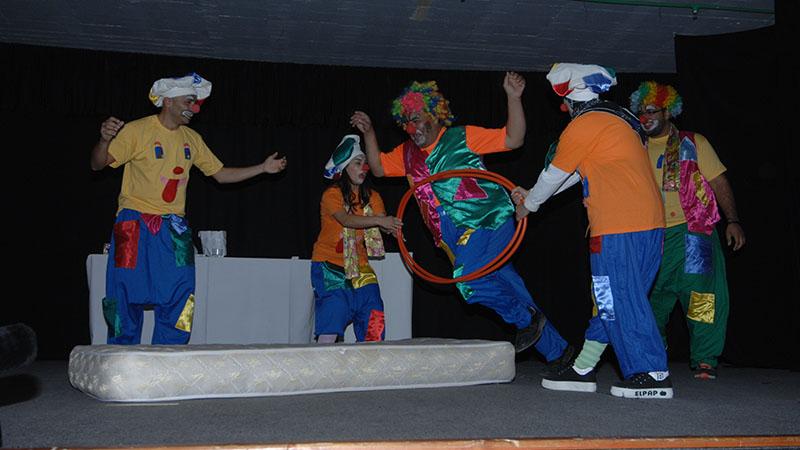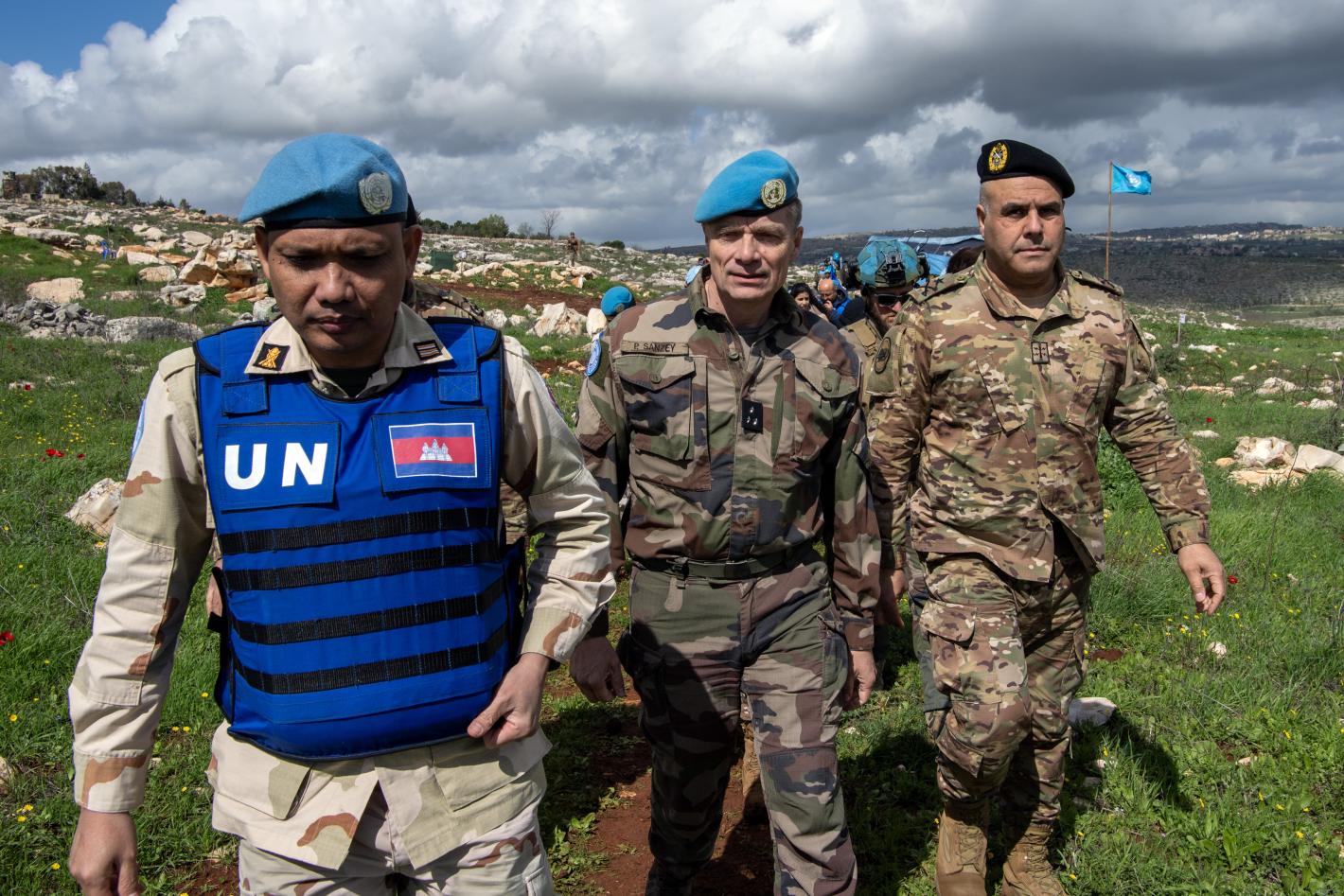A captivating stage performance was presented at Mosan center starring jubilant performers flickering like butterflies and performing flawlessly like professional choreographers, exuding confidence and happiness.
The show tugged on heartstrings for one reason; the performers are children with Down syndrome from Mosan center.
The harmonious performance is a by-product of the clown therapy project conducted by UNIFIL in cooperation with local institutions.
Last year marked the emergence of clown therapy in south Lebanon as a new approach to dealing with children with special needs. UNIFIL succeeded in staging 16 classes to train clown therapists on conducting clown therapy sessions, at four main centers in south Lebanon.
Clown therapy is important because it helps children with special needs to establish relations with their surroundings including with family and society, according to UNIFIL Italian Civil-Military cooperation (CIMIC) officer Captain Parisi.
"It builds up children's capacity... Their dignity and eagerness for life is the same as that of normal people," noted Cpt. Parisi.
The director of Mosan center, Ali Sharaf Eddine, explained that cooperation with UNIFIL started in 2006, and recently UNIFIL organised training classes on clown therapy which is a new concept at the center.
"The 150 students at the center were not only laughing at the performances of the clown, but they also gained the confidence to take part in stage performances and participate in activities, acting out and making others laugh," clarified Sharaf Eddine reflecting on the techniques of the therapy.
Clown therapy activities were organized by the CIMIC and Civil affairs units at UNIFIL in collaboration with the Italian battalion and Lebanese institutions.
To ensure the continuity of the initiative in the south, UNIFIL trained a professional team of trainers from Mosan Center in Tyre, Aita Shaab Center for children with Special needs, Nabi'e Association, and the Lebanese Red Cross in Tyre.
"Mitigating sickness by laughter, breaking the barriers of isolation by love, is the bedrock of the therapy," said Italian Army Warrant Officer Walter Mazzocchi, a former air traffic controller at UNIFIL and a clown therapy trainer.
Mazzochhi's experience started in Italy three years ago when he decided to raise funds for children with cancer. Raising funds was difficult and the money collected was even not enough; the alternative solution for Walter was treating children through clown therapy.
"Clown therapy is not about putting on clown costumes and acting stupid things," said Walter. Walter focused on the core of the therapy, pointing out that "clown therapy is about giving love."






